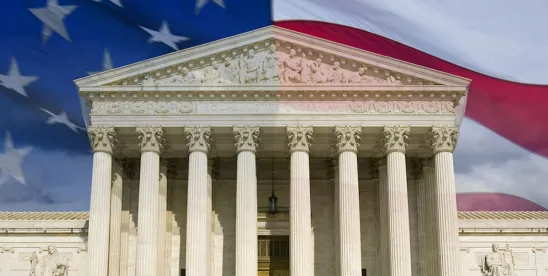Just when Federal agencies and Administrative Law Professors thought it couldn't get any worse, the current majority of our nation's highest court today released a third opinion in less than a week further diminishing the authority of the Executive Branch of our Federal Government.
In Corner Post, Inc. v. Board of Governors of the Federal Reserve System, the Supreme Court held that a “facial” judicial challenge to a federal regulation can be brought for six years after the challenger is “injured” even if more than six years have passed since the Federal regulation was effective.
Before today, all but one Federal Circuit Court of Appeals, including the DC Circuit Court of Appeals where most regulations are challenged, had held that such “facial” challenges had to be brought within six years of when the challenged regulation was effective. The time within which one could challenge regulations “as applied” to a particular challenger was, and is, governed by when the allegedly offensive “application” occurred.
This means that unless and until Congress changes the 1946 law differently interpreted by the Supreme Court majority today, any regulated community need only find an entity not in existence when a regulation was promulgated in order to challenge a regulation in court.
This most recent drag on the Executive Branch's capacity to regulate comes on the heels of two other Supreme Court opinions last week making it much more difficult for the Executive Branch to publish and enforce regulations than it has been for a half-century.
In Securities and Exchange Commission v. Jarkesy, the majority seems to have held that the Seventh Amendment to the United States Constitution guarantees anyone a right to a jury trial if a federal agency seeks civil penalties for violating a federal law. Before last week, it was understood that Federal agencies could both prosecute and resolve penalty proceedings administratively, without the need for protracted litigation in Federal Courts.
And, of course, in Loper Bright Enterprises v. Raimondo, the Supreme Court majority overturned the forty-four-year-old precedent that courts should defer to agency interpretations of laws that Congress has charged them with enforcing.
Ironically, as we prepare to celebrate the anniversary of the birth of our nation, these opinions are replete with references to things written by the founders two and a half centuries ago but not much written in the past half-century.
Collectively these opinions of the current majority of our nation's highest court reduce the power of the Executive Branch to a point most of us haven't seen in our lifetimes.
Because the balance of power in our Federal Government is what my daughter used to call a “winning or losing game”, the Executive Branch's loss is the Judicial Branch's gain, at least unless and until the Legislative Branch does a much more thorough and timely job.
In the meantime, federal agencies, including the Environmental Protection Agency, will have to gird themselves for much more litigation, triaging what fights are worth having and then trying to have them, and Administrative Law Professors have only a few weeks to prepare to teach a much different course than they have ever taught before.
We must decide when a claim brought under the Administrative Procedure Act 'accrues' for purposes of this provision," Justice Amy Coney Barrett wrote for the majority, which reversed an Eighth Circuit ruling. "The answer is straightforward. A claim accrues when the plaintiff has the right to assert it in court — and in the case of the APA, that is when the plaintiff is injured by final agency action."




 />i
/>i

